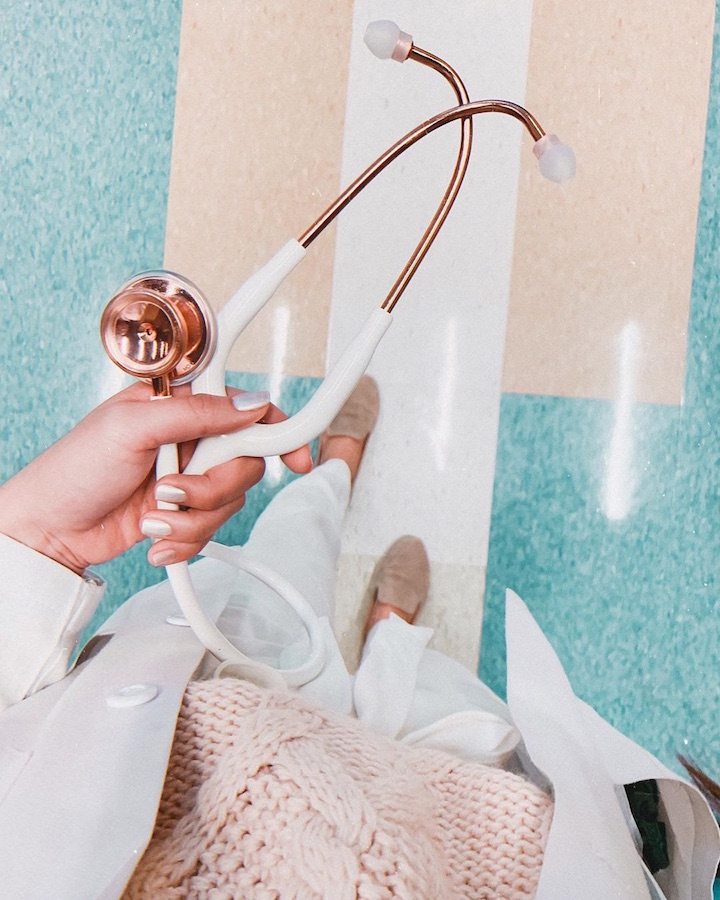
Hi all! As promised, here’s how I studied for my Pediatric NBME/Shelf Exam. I honored it with an 89%. My study schedule is a little overkill, but the repetition with multiple resources helped me learn everything well. I also attribute doing pretty well on my rotation experience. I had phenomenal attendings and residents who created a great learning environment. They frequently encouraged us to look up our patient’s conditions and give a brief 5-10 minute talk on it to other medical students or the team. If you’re not required to do this, I still encourage you all to use your patients as learning opportunities- lookup and learn as much as you can about their condition. It’ll help you solidify diseases and drug therapies much better than just reading it from a book.
Good luck studying!
Week 1-2
- Start with reading/skimming BRS Pediatrics
- I started off with topics that I’ve encountered in the hospital. For example, I was on NICU and nursery my first two weeks. So, I reviewed the neonatology, well-baby, and related chapters first.
- I took notes on high yield points.
- I completed the questions at the end of the chapter.
- Start doing Uworld
- I started off doing 15-20 questions/day during the first week then progressed to 30-40 the second week. I made Anki flashcards on questions I got wrong. I also made sure to mark all the questions wrong so I could redo them at a later time.
Week 3-4
- Continue reading through BRS Peds
- These next two weeks, I was on General Peds and Endocrine clinic. So, I started reading the related chapters such as Infectious Disease, Respiratory, Endocrine, Rheumatology, Ortho, etc.
- Continue doing UWorld
- I started to increase the number of questions to 40 questions a day and finished Uworld at 3.5-4 weeks.
Weeks 5-6
- Continue reading through BRS Peds
- I was on Nights and Hem/Onc Inpatient these weeks so I read chapters related to Cardiology, Hem/Onc, Allergy/Immunology, Neurology, etc.
- I started AMBOSS questions.
- I did 40-60 every day. Again, making flashcards on the questions I got wrong.
- I finished AMBOSS and started Pretest at the end of week 6.
- I watched the Emma Holiday Pediatric Review Youtube video and reviewed her powerpoint slides.
Week 7
- I redid all my Uworld Incorrects.
- I reviewed my notes I took on BRS.
- I reviewed the Emma Holiday powerpoint slides.
Week 8
- I re-skimmed through all of BRS.
- I finished Pretest.
- I did all the NBMEs/Clinical Mastery exams.
- I reviewed the Emma Holiday powerpoint slides.
There you have it! If I were to do it again, I’d wouldn’t change a thing. I learn really well off of tons of practices questions. BRS Peds is also a great comprehensive book. If you don’t want to read it cover to cover, at least use it as a reference to look up topics you’re getting wrong. As for helpfulness of question banks, I think Uworld > Pretest > AMBOSS. If you don’t have much time, do Uworld and some of Pretest.
General Advice
Topics that were high-yield on my exam and that I saw repeated on the NBMES are:
- Precocious and delayed puberty. Know how to work these up.
- CN/CO/Methemoglobin Poisoning. Know how to recognize and treat.
- Know common age and X-ray findings for Legg-Calve-Perthes vs SCFE.
- Know how to spot derm conditions like tinea corpis, cradle cap, and scabies. Know how to treat them.
- Although I did see vaccine schedule questions on the practice NBMEs, I did not have any on my shelf exam.
- Know the basic developmental milestones. For example, 2mo- social smile, 4mo- rolls, 6mo- sits, 12mo- 1-word, 3yr- draw a triangle.
- Know the upper airway diseases. Croup, tracheitis, epiglottitis…
- Be able to recognize anaphylaxis and what to do if someone has it.
- Be able to differentiate between Meckel’s vs intussusception vs volvulus.
- Learn the immunodeficiencies disorders very well. Uworld has very good charts on these.
- Know how to manage DKA, review your acid-base disorders (remember MUDPILES ;)), and know what the best initial resuscitation fluid is (Normal Saline!).
Good luck and let me know if you have any questions by commenting below!!
Check out my post on the comprehensive list of resources I used for each clerkship!
Your page is so calming and with great advice! Thank you 🙂